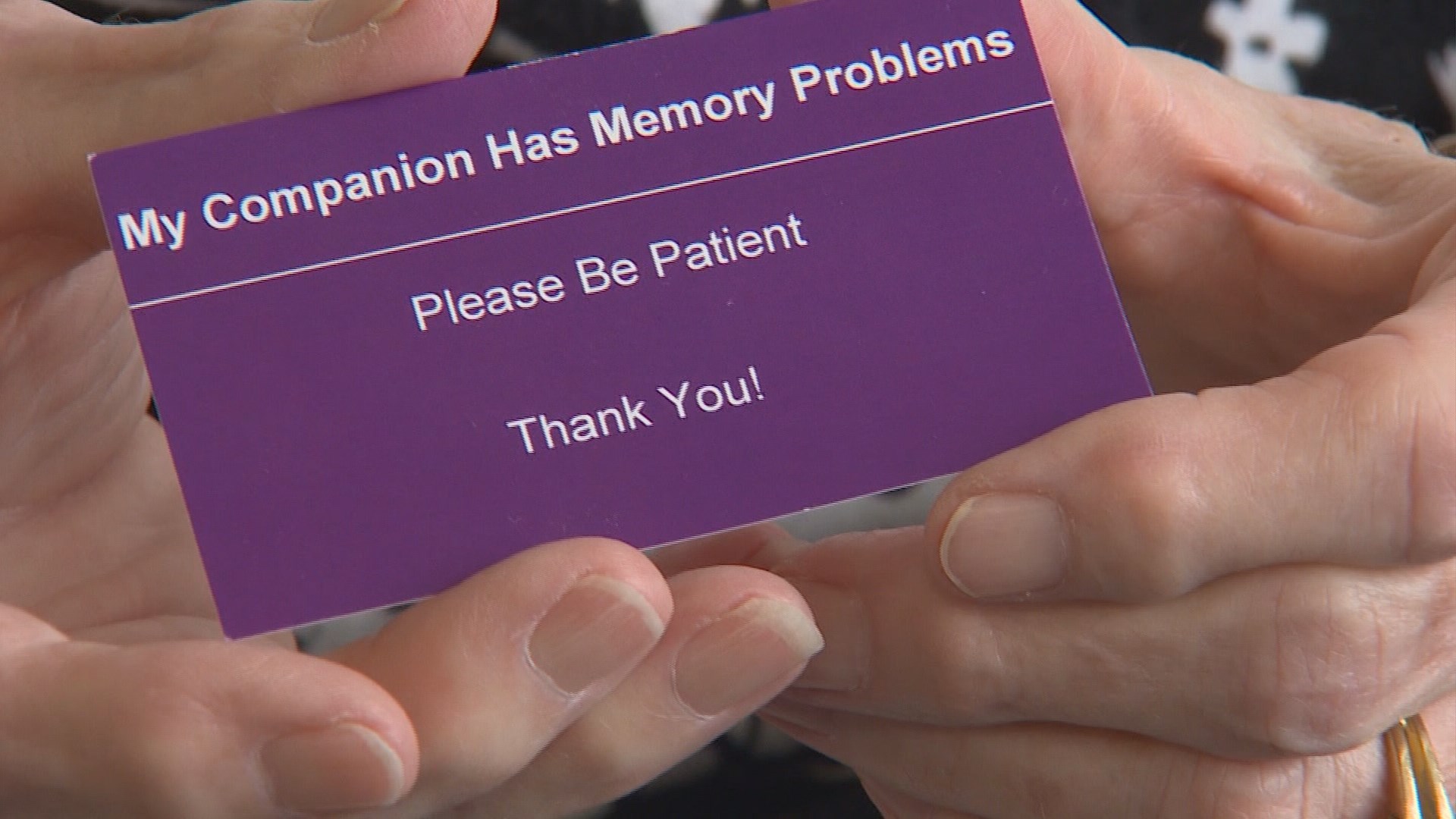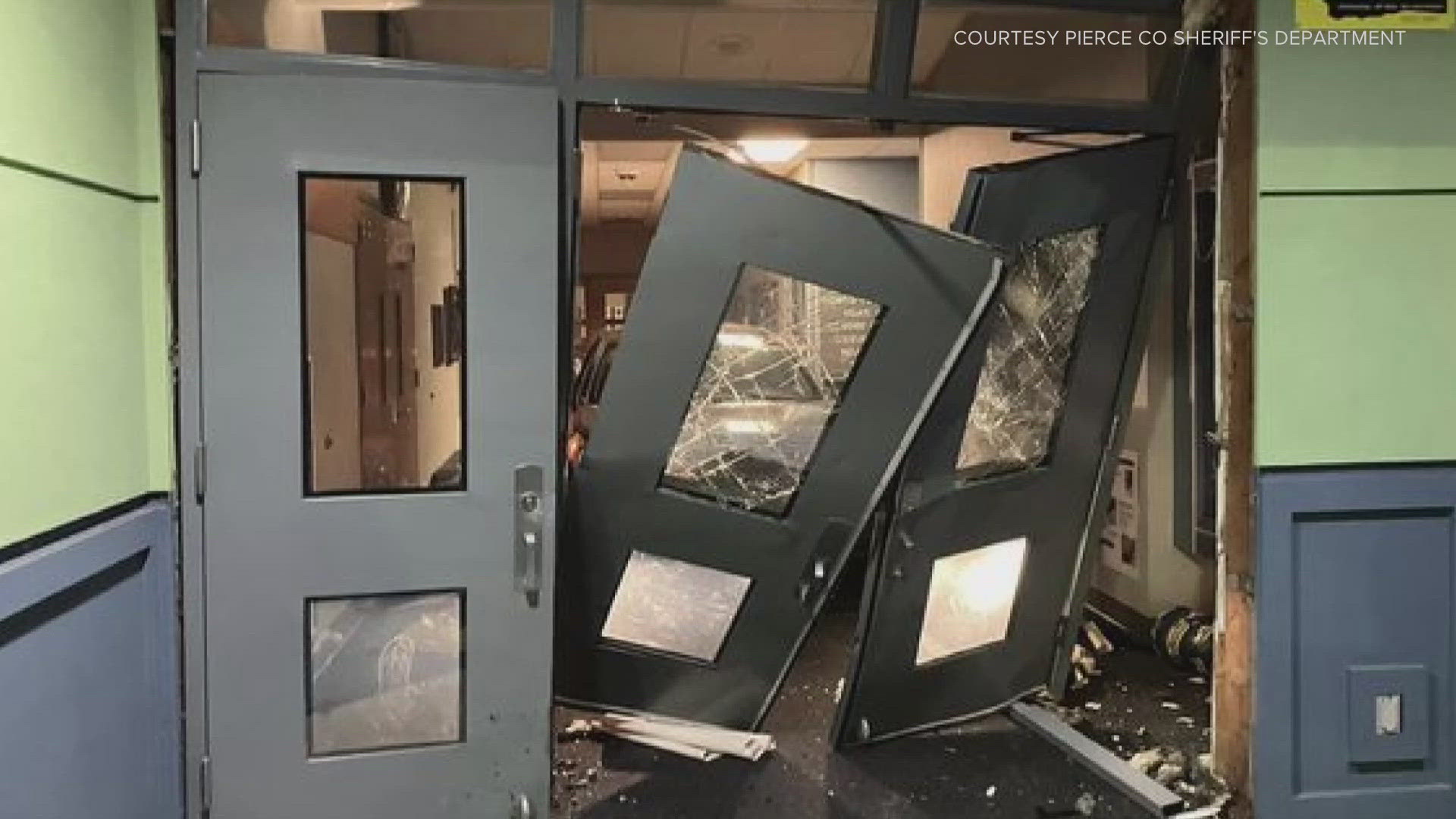PORT ORCHARD, Wash. -- It's a scary statistic -- every 67 seconds, someone develops Alzheimer's disease or dementia. And that's just part of the reason behind a new push to make life a little easier for both caregivers and patients.
For a Port Orchard family, it's a campaign that's quite personal.
Madeleine Fraley is loving a wife and in recent years, she's an around-the-clock caregiver for her 72-year-old husband who suffers from dementia.
"It's been a really devastating sad course, and part of my challenge is not to be sad," Madeleine said. "So, I work very hard at doing things that are productive and lift my spirits up."
From that challenge came an idea. Madeleine noticed her husband, Larry, would at times get confused in public. As a result, she says, he would often get strange stares from people at the grocery store, the bank or perhaps at a restaurant where the pair were eating dinner.
That's why Madeleine created a purple card that reads: "My companion has memory problems. Please be patient. Thank you!"
She hands the cards out to discreetly explain Larry's behavior and let people know he's coping with dementia.
But Madeleine isn't stopping there. She first tried to get the purple card proposal passed as a bill in the state legislature. When that didn't work, she began searching for other ways to widely produce and distribute the purple cards. She believes it's a small gesture that could help many more families just like hers.
![Purple card could help people with dementia [video : 80883472]](http://king-download.edgesuite.net/video/1957438/1957438_Still.jpg)
"It's inexpensive. It's a simple concept," she said. "Just a simple business card, but I think it could really have a lot of impact for people, like myself who are keeping our loved ones in our homes."
Just about two weeks ago, Governor Jay Inslee announced the state's first-ever plan to address Alzheimer's disease and dementia.
Madeleine has been working closely with the Washington Chapter of the Alzheimer's Association, and hopes the group charged with implementing the state Alzheimer's plan can find a way to incorporate the purple cards.
"If they would be able to take this concept and put it into the state plan, that would be just incredible," said Madeleine. "There are hundreds of thousands of caregivers in our state that need this kind of support."
She is already being inundated with requests for purple cards. Madeleine said she won't be able to keep up with the demand on her own, but is hopeful the idea will soon take off on a larger scale.
"I want it to be recognized immediately, the color, the card," she said. "I hand you a purple card, you don't have to read it any longer, because you've been educated enough to know what it says. "So if there are 300,000 caregivers out there and each one hands one card to someone on a given day, that's another 300,000 people who have been impacted by receiving it."
![Purple card could help people with dementia, caregivers [video : 80922084]](http://king-download.edgesuite.net/video/1990490/1990490_Still.jpg)


![Alzheimer's Purple Card [image : 80919138]](http://cdn.tegna-tv.com/media/2016/02/25/NWGroup/KING/635919868368524215-purple-card.JPG)
